Reverb is a common term used throughout the music industry. You will find it on mixing consoles, amplifiers, and DAWs.
Even if you have used reverb before, it still helps to know what it means in the context of music. Anyone who plays an instrument or produces music should understand what reverb is and how to use it.
Reverb is an abbreviation of reverberation. It is sound reflecting off multiple surfaces at once, causing the sound to enter the ear at different rates. This creates a ‘shaking’ or dense sound. Reverb can be heard by making a loud noise in a large room. This effect is used in music to add depth.
There are several effects used in music on all levels – reverb is among the most common and most widely used. This effect makes a significant difference to music of every kind.
Learning how to use it is critical for everyone involved in music production. Let’s find out more about reverb and how to use it.
What Does Reverb Mean?
Reverb is used almost everywhere in music. It is often misunderstood – and so many musicians and producers fail to make the most of it.
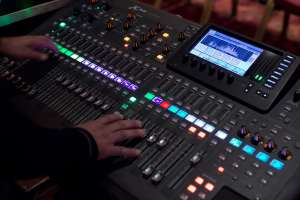
Learning about reverb is the first step in understanding it and how to use it to make music sound better. The word ‘reverb’ is an abbreviation of the word ‘reverberation.’
The term reverb is a way to describe a sound that is produced by the scientific process of reverberation. Reverb is treated as an audio effect rather than a physical effect, which is why there is a distinction between reverb and reverberation:
- Reverberation – a physical effect that refers to the persistence or prolongation of a sound, even after the source has stopped (due to reflections of sound from surfaces).
- Reverb – an audio effect that adds depth to music, based on the physical effect of reverberation.
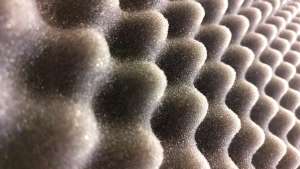
The reverb of any time is the sound that is generated when audio frequencies reflect off of surfaces and combine with the original sound source on the way to the human ear, only arriving very shortly after the original sound.
So, reverb happens when a sound is made and the sound reflects off of multiple surfaces. This creates several micro-delays in the audio.
When all of the sounds reach our ears, they come in at different rates. This creates the effect that we hear as reverb.
Reverb makes a sound last for more time than the original duration of the sound. It is known for producing a kind of ‘shaking’ effect as the frequencies enter the ear at different times.
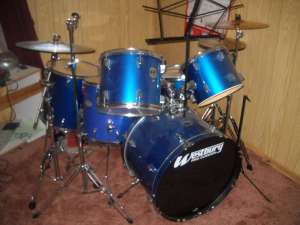
You can hear reverb if you play music or an instrument in an empty room. This effect changes the characteristics of the sound – along with the way we perceive the sound.
Reverb often adds an organic feel to the music, which is why it is recreated digitally in most recordings. Reverb makes instruments and voices sound more natural than they do when they are recorded in a sound-controlled booth.
How Do You Use Reverb In Music?
Reverb is a popular effect in music, available on many amplifiers, mixers, and DAWs. It is usually added to dry audio signals to make them feel more lively.
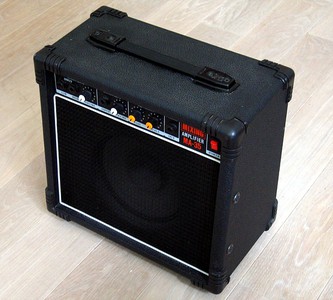
Many producers, audio engineers, and musicians alike are unsure about how to use reverb to improve music.
The reverb effect sounds like micro-echoes in a large room when a loud sound is played. This effect makes music sound more natural and organic.
If you go and listen to a live band in a room, the reverb in that room makes the music more exciting and makes the music sound full.
When music is recorded, it does not have this effect unless the effect itself is recorded at the same time. This is very challenging, and it is far easier and much more controllable to reproduce the effect of reverb once the music has already been made.
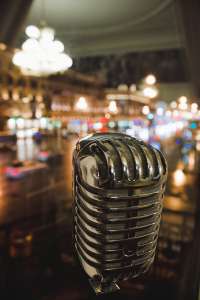
Using reverb makes music sound better overall. The key is to control how you use it.
Too much reverb will ruin the sound of an instrument or a voice. Too little reverb on a very dry recording will leave the track feeling lifeless.
Reverb has multiple ‘layers,’ as it has an initial sound, a sound that carries, and a drop-off sound known as decay. The trick to using reverb well in music is balancing these three elements of reverb.
Most producers like to use reverb with a strong carrying sound, a weaker initial sound, and a quick decay.
If the decay on your reverb is too long, it will carry for too long and sound more like a delay. The decay of a reverb should be just enough to hear it but not long enough to create a new sound.
The center (carrying the sound of the reverb) should be strong – but not as strong as the original sound. If the reverb is too pronounced, it will muddy the sound of the track.
Reverb should sit well in a mix and find itself just underneath the original sound.
The initial reverb sound has a lot of variable parameters depending on the sound you want to produce. A quick initial reverb will blend in with the original audio well, but a long initial reverb creates a feeling of space and dynamics. This aspect of reverb must be well-balanced per song to sound its best.
Should You Use Reverb?
Reverb can be used in every area of music. For example, you can add reverb to individual instruments at their source (such as dialing it into a guitar amplifier).
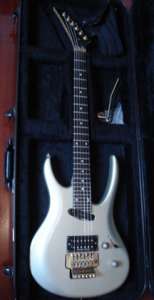
You can also add reverb to live music by increasing the effect with a mixer. Another possibility is to improve recorded music with post-production effects.
Reverb can even be added to a sound by creating more space in the room where the music is made. Reverb is a tool in the hands of everyone in the music industry, but should you be adding more reverb to your work – and how do you know when to use this effect?
The truth is that every area of the industry can make good use reverb. You should definitely use reverb in post-production music work, and it should be carefully controlled when mixing live sound.
Adding reverb to recorded music will make it sound more alive, and adding reverb to a live performance increases the feel and effectiveness of the music in the room.
This effect should always be used sparingly, especially in live situations. Remember that reverb can cause serious issues (such as feedback), and it can ruin the sound of the overall mix.
Reverb should only be added to individual instruments as needed and when necessary. Reverb is not an effect to use on all things always.
Conclusion
Reverb is an excellent effect that can improve music, but it can be difficult to use well. Learning to use reverb requires skill, patience, practice, and time to do well.
Take the time to learn how to use reverb well in your musical sphere, and the music that you make or process will be drastically improved.
You can learn about compression here.
You can learn about whether to add compression before or after reverb here.
You can learn about modulation effects here.
You can learn about spectral effects here.
